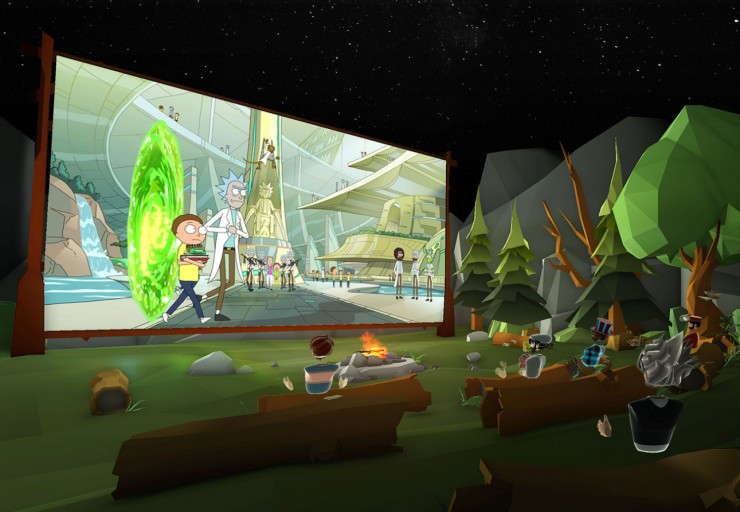Kids and Technology: How to Help Maintain a Balance
20.05.2019, 14:00
Poor parents! Tech is getting more and more difficult to limit for our kids, especially when there is so much of it. Netflix ‘binges’ can produce an uninterrupted stream of viewing, ‘smart’ phones are stock full to the brim with apps and then there are still blu-ray discs, tablets, video game consoles, hand-helds, VR and now Alexa, AI and robots to interact with. Fortnite disease? Just recently, the WHO (World Health Organisation) has announced that video game addiction should be labeled as a disease.
We've covered this topic in a previous post here at PrizesDrop in terms of Amazon Alexa, but there's a lot more to say on this subject in general.
We're not saying all tech is bad, but with so many distractions, it almost seems like there’s less and less time being set aside for physical sport or dedicated, real-world activities, although some might say running around for hours after a ball is also pretty crazy. But kids have physical and mental energy and parents need to direct it somewhere preferably social, not too dangerous but exciting and rewarding. What happened to growing plants or hunting animals? Well, the latter may be more obvious considering our rapid evolution; our reliance on big industry and our movements into smaller and smaller (city) spaces. As solutions, there are lots of sports or music clubs to force them into, or day-trip activities which, although worthwhile, can end up costing a lot or else just feature as ‘one-off’, random events. However with some effort, the right activity can promote positive qualities including involvement, social competition and commitment.
You might also ask: what happened to just being bored? Well, it’s no easy thing to endure a restless kid being bored, although it can lead to unexpected ideas or them ‘helping’ out for a short while in the kitchen or garden. Saying a firm ‘no’ sometimes to their pleas for tech, or making them be bored is actually more likely to enable us, the parents, to come up with something more tangible; more constructive for them. This is because kids require supervision and guidance up to a certain age. Otherwise, they’ll most likely go for the easiest options when it comes to taking less immediately satisfying courses of action (unless there is something that sounds exciting or rewarding at the end of them).
So we have to make things sound great or rewarding or design them to produce these outcomes. Then, handy skills can develop along with the possibility and pride about achieving things, sharing things, or showing off things they’ve been made with others.
All this may feed into valuable developmental qualities like patience, confidence, humor, thoughtfulness, self-control and greater resilience (to deal with unexpected outcomes). That’s not to say technology can’t expand the mind but, perhaps because it’s less real or abstract (especially to a kid) and because it gets switched off and disappears, it has less of a chance to produce these qualities.
So... how to integrate Tech?
Moderation with technology is essential. Used well, it has a lot to offer, and, as social animals, any time you can watch TV with your kid or check up on their progress is great. They can discuss things they’ve been watching or playing (if you ask them what they like or don’t like) which might lead to other conversations. It all comes down to feedback, and if kids receive it from achieving or doing things (even a level) then they are happier for it.
Limit, Control and Select
Never despair when it comes to finding activities: ideas always come out of the woodwork. That’s why it’s important to use Parental Controls on all your devices, such as a Kids Zone on your smartphone, and set time limits.
Install certain types of apps that you’ve tested yourself and might produce learning or familiarity. Remove adverts if you can. Don’t expect a kid not to go for the easiest app going - so it’s a good idea not to include Youtube Kids in the Learning Zone!
Apps can produce a good all-around awareness of skills, from music and songs, alphabet-tracing, puzzles, pet-caring and interactive stories. For kids of most ages, we recommend the Hungry Caterpillar app, as it speaks to basic interaction and result. Remember that when it comes ‘sim’-type games or many games for that matter, that some have lengthy tutorials and pop-up speech-bubbles, which will be lost on a kid who can’t even read! Also, don't forget to put access controls on your Payment choices, although Kids Zones should prevent access anyway. Google and co. are pretty fast and understanding at refunding though, should you discover a whole load of unexpected micro-transactions or purchases.
Amazon Alexa etc. can be great for audiobooks you buy off Audible, making phone-calls to relatives (or emergency services) and getting your kid to express commands or words clearly. It can also be fun and introduce them to jokes and humor. There are also lullabies, story creation skills (where you can insert the names of your kids) and ‘open super nanny’ for activity ideas.
With more engrossing games, it’s probably wise to avoid the more ‘addictive’ types (such as Minecraft) until a certain age. However, there are some very good, harmless ‘indie’ console games that can feed the adventurer, without too much frustration. ‘Rime’ or even ‘Journey’ (free now on PS store) are good, relaxing ones with intuitive controls. There are some darker moments, but this can also create a bond if you accompany them along the way.
Certainly, selecting carefully the right apps, games, films, sounds and TV are essential in ‘introducing’ kids to the world of technology in stages. It can also remind us parents of how we should be using it! You see, kids can be healthy for us too!

 Upcoming (Dreamworks) series on Netflix 2019-2020
Upcoming (Dreamworks) series on Netflix 2019-2020
 5 Quick Alternatives to Youtube for Earning Money (2019+)
5 Quick Alternatives to Youtube for Earning Money (2019+)
 How to get free Bitcoin and what to do with it?
How to get free Bitcoin and what to do with it?
 Postal 4: the best fun game for Halloween?
Postal 4: the best fun game for Halloween?
 7 Christmas gift ideas for Cryptocurrency lovers and Bitcoin geeks
7 Christmas gift ideas for Cryptocurrency lovers and Bitcoin geeks
 New Star Wars games Coming Soon…
New Star Wars games Coming Soon…
 Going to the movies in VR (yes, it’s happening): What's the best app?
Going to the movies in VR (yes, it’s happening): What's the best app?
 Dive into 'The Sandbox' and get Rewarded!
Dive into 'The Sandbox' and get Rewarded!